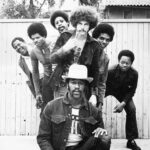On a Sunday in Miami Gardens, Florida, Miami Dolphins wide receiver Tyreek Hill found himself in an unexpected confrontation with law enforcement. Just before a home game at Hard Rock Stadium, a routine traffic stop escalated, leading to Hill being forcibly removed from his vehicle, thrown onto the pavement, and arrested by Miami-Dade Police Department (MDPD) officers. The incident, which occurred on a public roadway, quickly garnered public attention, especially after body camera footage was released the following day amidst growing outcry. While Hill was released at the scene and allowed to proceed to the game, the arrest itself and the manner in which it was conducted have raised serious questions about police conduct and accountability.
The timing of Tyreek Hill’s arrest is particularly noteworthy as it comes shortly after the City of Miami’s controversial decision to disband its Civilian Investigative Panel. This panel, established over two decades ago by community advocates, served as an independent body to review police actions and ensure accountability. The dismantling of such oversight mechanisms has become a central point of concern in the wake of Hill’s arrest, prompting discussions about potential implications for police behavior and community relations.
Alt text: Tyreek Hill, Miami Dolphins player, in action during a game, highlighting his athletic prowess and importance to the team.
Kara Gross, the legislative director at the ACLU of Florida, issued a strong statement in response to the footage of Tyreek Hill’s arrest. She emphasized that the escalation of what began as a simple traffic stop is a stark illustration of the “heavy-handed mistreatment” often experienced by Black and brown communities. Gross described the video as “deeply disturbing,” underscoring the pervasive fear and mistrust that exists between law enforcement and these communities. She argued that the incident perfectly exemplifies the critical need for robust police accountability measures.
Gross further criticized the priorities of law enforcement spending, stating that taxpayer money should be directed towards preventing violent crimes rather than towards the forceful arrest of individuals for minor traffic violations. She also condemned the handcuffing of peaceful bystanders who were simply witnessing what appeared to be excessive use of force by the police. Her statement directly connects the incident with broader legislative trends, referencing Governor DeSantis’s signing of legislation earlier in the year that weakens civilian review boards across Florida. She argues that Miami’s decision to defund its Civilian Investigative Panel, in the context of this state law, directly contributes to incidents like Tyreek Hill’s arrest.
Alt text: Miami-Dade Police Department patrol car, representing the law enforcement agency involved in the Tyreek Hill arrest incident.
According to Gross, the disbanding of civilian review boards could embolden police officers to overstep their authority, as there are fewer mechanisms in place to ensure they are held responsible for their actions. Drawing parallels with past incidents of police violence, such as those involving Philando Castile and George Floyd, where the release of camera footage was delayed, she questioned the fate of individuals without Hill’s public profile and resources. She raised concerns about cases lacking camera footage or public attention, asking what happens to those who are subjected to similar escalations and excessive force when there is no public record.
Alt text: ACLU (American Civil Liberties Union) logo, representing the organization whose legislative director, Kara Gross, commented on the Tyreek Hill arrest.
Gross concluded by advocating for “drastic changes” in public safety approaches, particularly concerning the disproportionate impact on Black and brown Floridians. She asserted that building trust and enhancing public safety requires a re-evaluation of laws that hinder police accountability and perpetuate disparities. The arrest of Tyreek Hill, while involving a high-profile athlete, serves as a focal point for a much larger conversation about police conduct, accountability, and the ongoing need for reform in law enforcement practices.

